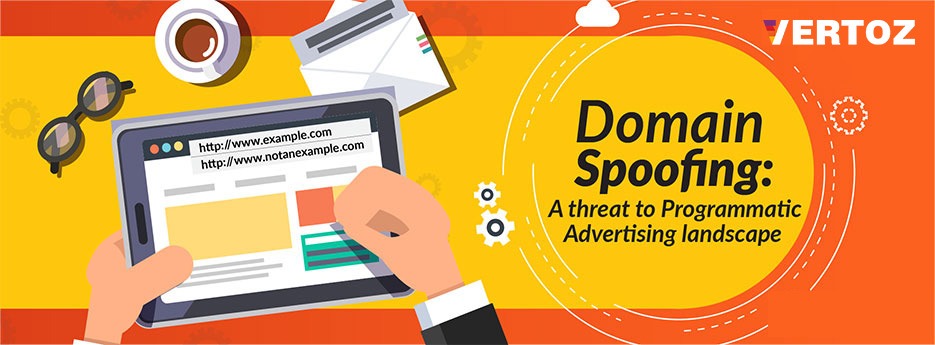
Domain spoofing has been one of the major problems that Ad industry has faced, this has been prevailing for many years now. The conversations surrounding the topic re-surfaced in late 2016 and again in late 2017 after two separate reports exposed how the ad industry was possibly losing millions each day to Bot views. These reports unearthed two scams namely, Methbot and Hyphbot that use a network of bots (computer generated users) to generate fake views to ads. This practice is referred as Domain Spoofing.
Methbot was a sophisticated hacking operation made in Russia, that has been tricking online advertisers by producing massive volumes of fake bot impressions on videos resulting in loss to advertisers in tune of $ 5 million a day.
Hyphbot was three to four times size of Methbot scam and costed businesses in millions, it generated fraudulent traffic on more than 34,000 websites this includes premium publishers like financial times
Domain Spoofing is not limited to the idea of faked domains, but it is more than that. As suggested in the WhiteOps report, the modus operandi looks something like this. People behind the Methbot fraud, started it by creating thousands of websites that appeared to belong to famous publishers from the United States, they then automated programmatic exchanges to sell video ads on those fake sites, following which they directed bots to “view” those ads and eventually collecting the money advertisers paid for those clicks. It is similar to how the Movie Industry loses out to piracy. Every year, the ad industry is losing out many million dollars to the fraud advertisers.
And this is exactly how marketers are made to believe that the ad space is on a legitimate site, however, in reality, ads are merely running on websites that are catering to traffic by bots. Major complexity exists due to the presence of multiple players in the delivery system, this is what makes anyone in the supply chain to push the blame for responsibility on another party. On various incidences, brands and agencies end up pointing a finger on the ad tech team and the blame game cascades down the supply chain. This makes it harder to catch the reprehensible behaviors.
Domain Spoofing hurts all stakeholders in the supply chain, and particularly publishers and advertisers. Advertisers spend millions of dollars of their ad budgets to showcase the ads in front of bots on low-quality site, while a trustworthy publisher never receives the bit and loses potential revenue.
While tackling these issues is an unnerving task and one that needs unfettered efforts, Vertoz is aware of the difficulties and has hence implemented the constant vigilance required to succeed in our quickly evolving landscape. Vertoz therefore provides its users with a self- serve platform through which they can monitor the campaigns and its properties in real-time.
With an advanced control panel, the users can check their real-time data, reports, and get updates regarding their revenue. It is easier to track, manage and control performance. Also, as a member of the Interactive Advertising Bureau (IAB), Vertoz is proud to be amongst the few ad exchanges globally, having implemented the ads.txt project on our platform, in order to make it difficult for fraudulent sellers to sell fake inventory across ad exchanges.
In an effort combat fraud, especially click fraud caused by malicious bots, Vertoz examines the statistical properties pertaining to the click behavior of regular users vs. the click properties associated with that of malicious bots and find algorithms to combat the ever-evolving strategies of bots. Vertoz’s brand safe partners make sure the advertising campaigns are safe from click-fraud and other fraudulent activities to ensure maximum safety of your advertising spends.
All members of the supply chain would have to work together to weed out domain spoofing and similar malpractices and hence, all advertisers (Brands & Agencies) must be watchful before engaging in business with any programmatic advertising platforms & SSP’s.

